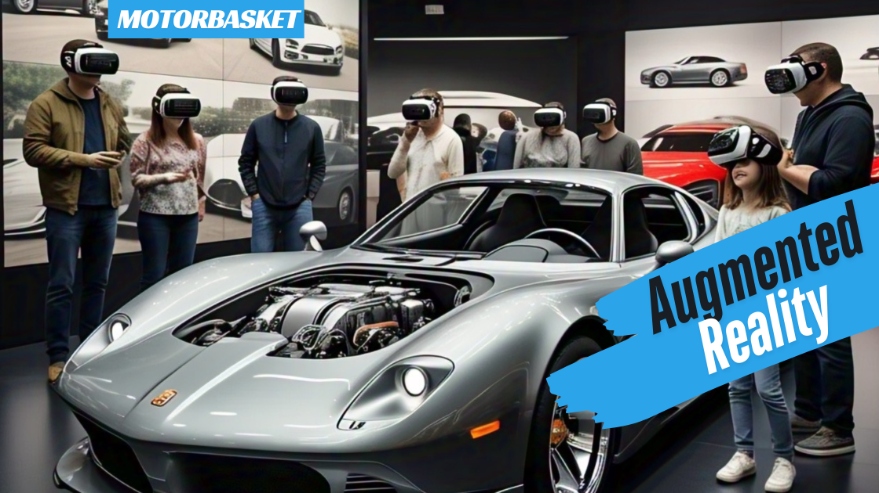6 Most Important Key Role of AI in the Automotive Industry
The automotive industry is undergoing a technological revolution, and Artificial Intelligence (AI) is at the heart of this transformation. From self-driving cars to predictive maintenance, AI is reshaping how vehicles are designed, manufactured, and driven. In this blog, we’ll explore the role of AI in the automotive industry, its applications, benefits, challenges, and what the future holds for this groundbreaking technology.
Table of Contents
What is Artificial Intelligence (AI)?
Artificial Intelligence (AI) refers to the simulation of human intelligence in machines that are programmed to think, learn, and make decisions. In the automotive industry, AI is used to enhance vehicle performance, improve safety, and create smarter, more efficient transportation systems.
How AI is Transforming the Automotive Industry
1. Autonomous Driving
AI is the backbone of autonomous vehicles, enabling them to perceive their surroundings, make decisions, and navigate without human intervention.
- Key Technologies:
- Computer Vision: AI-powered cameras and sensors detect objects, pedestrians, and road signs.
- Machine Learning: Algorithms learn from vast amounts of driving data to improve decision-making.
- Sensor Fusion: Combines data from LiDAR, radar, and cameras for accurate environment mapping.
- Examples:
- Tesla’s Autopilot
- Waymo’s self-driving taxis
2. Advanced Driver-Assistance Systems (ADAS)
AI enhances ADAS features like lane-keeping assist, adaptive cruise control, and automatic emergency braking, making driving safer and more convenient.
- Benefits:
- Reduces human error, which causes over 90% of accidents.
- Improves driver comfort and reduces fatigue.
3. Predictive Maintenance
AI analyzes vehicle data to predict potential failures before they occur, reducing downtime and repair costs.
- How It Works:
- Sensors collect data on engine performance, tire pressure, and battery health.
- AI algorithms identify patterns and predict maintenance needs.
- Examples:
- General Motors’ OnStar
- BMW’s ConnectedDrive
4. Manufacturing and Supply Chain Optimization
AI is revolutionizing automotive manufacturing by improving efficiency, reducing costs, and ensuring quality.
- Applications:
- Robotics: AI-powered robots perform repetitive tasks with precision.
- Quality Control: AI systems detect defects in real-time during production.
- Supply Chain Management: AI optimizes inventory and predicts demand.
5. Personalized In-Car Experiences
AI enables personalized features like voice assistants, customized infotainment systems, and adaptive climate control.
- Examples:
- Amazon Alexa in cars
- BMW’s Intelligent Personal Assistant
6. Traffic Management and Smart Cities
AI helps optimize traffic flow, reduce congestion, and improve urban mobility.
- Applications:
- Real-time traffic monitoring and rerouting.
- Integration with smart city infrastructure for seamless transportation.
Benefits of AI in the Automotive Industry
- Enhanced Safety:
- AI reduces accidents by improving vehicle perception and decision-making.
- Improved Efficiency:
- AI optimizes fuel consumption, reduces emissions, and enhances manufacturing processes.
- Cost Savings:
- Predictive maintenance and automation lower operational costs.
- Better User Experience:
- Personalized features and autonomous driving make vehicles more user-friendly.
- Sustainability:
- AI supports the development of electric and hybrid vehicles, contributing to a greener future.
Challenges of AI in the Automotive Industry
- High Costs:
- Developing and implementing AI systems requires significant investment.
- Data Privacy Concerns:
- AI relies on vast amounts of data, raising concerns about privacy and security.
- Regulatory Hurdles:
- Governments are still developing regulations for AI-driven technologies like autonomous vehicles.
- Technological Limitations:
- AI systems struggle with complex driving scenarios and unpredictable environments.
- Public Trust:
- Many consumers are hesitant to trust AI-driven vehicles due to safety concerns.
The Future of AI in the Automotive Industry
The future of AI in the automotive industry is incredibly promising, with several exciting developments on the horizon:
- Fully Autonomous Vehicles:
- Level 5 autonomous vehicles, capable of driving in all conditions without human intervention, will become a reality.
- AI-Powered Electric Vehicles:
- AI will play a key role in optimizing the performance and efficiency of electric vehicles.
- Enhanced Connectivity:
- AI will enable seamless communication between vehicles, infrastructure, and other devices (V2X).
- AI-Driven Mobility-as-a-Service (MaaS):
- AI will power ride-sharing, car-sharing, and other mobility services, reducing the need for private car ownership.
- Sustainable Manufacturing:
- AI will help automakers reduce waste, energy consumption, and emissions in production processes.
Conclusion
AI in the automotive industry is no longer a futuristic concept—it’s here, and it’s transforming the way we drive, manufacture, and think about transportation. From autonomous driving to predictive maintenance, AI is making vehicles safer, smarter, and more efficient. While challenges like high costs and regulatory hurdles remain, ongoing advancements are paving the way for a brighter, AI-driven future.
As the automotive industry continues to evolve, AI will play an increasingly vital role in shaping the future of mobility.
What are your thoughts on the role of AI in the automotive industry? Share your opinions in the comments below!
By staying informed and engaged, you can be part of the conversation shaping the future of transportation. Don’t forget to subscribe to our blog for more updates on the latest trends in the automotive industry!
Click on Below Links to Follow Us on Our Social Media Pages
Click on Below Links to Read Our Company Policies




